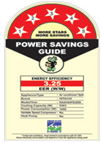What is Sustainable Consumption?
Consumption is not a straightforward process. When we buy a commodity we are also responsible for the process it goes through to reach us. Under what conditions was an item has manufactured? Were workers paid fair wages? Were they exposed to harmful substances during the production process? Which products and which companies do the consumers want to support with their purchases? Do they buy the food in a supermarket, around the corner at a local vendor or at a weekly outdoor market? How will the product ultimately perish-will its destruction lead to polluting the earth, water or air?
At this moment there is a need to follow a pattern of consumption that can sustain the environment and its resources without withholding the needs of the future generation. The term "Sustainable Consumption" refers to selective consumption based on awareness of the environmental, social and economic aspects of consumption.
There are four key tenets that help you buy responsibly:
Avoid buying if you don't really NEED it
Each time you buy you MODIFY the environment forever
Find out ALTERNATIVES to goods you buy, pick from among the best ethically and environmentally
Make positive changes to your BUYING BEHAVIOUR, celebrate your good decisions!
SUSTAINABLE CONSUMPTION CAN BE POCKET FRIENDLY!
Here's how -
# Buy local and seasonal food products.
# When you purchase a product make a conscious thought on the usefulness of the product.
# Instead of driving, walk or use a bicycle
# Sell or donate unwanted goods such as clothes or books. Likewise, buying second-hand goods from garage sales is a great way to buy new clothes and save some money.
# Reduce meat consumption: Meat products contribute heavily to our ecological footprint.
# Turn appliances off instead of leaving them on standby and you can save up to 5 percent from your electricity bill.
Bring to the fore, the concept of sustainability some labels has been introduced to the consumers, so that they consider the environment before buying any product. Some of the labels are:
A label for environment-friendly products Ecomark India is a government operated seal of approval program for environmentally preferable consumer products. |
 |
| India Organic label is a govt. authority which provides national standards for organic products. Products with the India Organic label are grown without the use of chemical fertilizers and pesticides. |
 |
| Internationally, the most widely recognized ethical label is the FAIRTRADE Certification Mark. When the consumer product bears the mark it ensures that the product has been traded according to international Fairtade Standards. |  |
| The BEE Star Energy Efficiency Labels have been created to standardize the energy efficiency ratings of different electrical appliances and indicate energy consumption under standard test conditions. These labels indicate the energy efficiency levels through the number of Stars highlighted in colour on the label. The BEE Star Labels include a Star Rating System that ranges from One Star (least energy efficient, thus least money saved) to Five Stars (most energy efficient, thus most money saved) http://www.beeindia.in/ |
 |
ISI mark is used for certification of the standards. It lays down the parameters for the products and services.http://www.bis.org.in/ |
 |
Hallmarking of gold jewellery is the Purity Certification scheme. Hallmarking indicates the caratage or number indicating gold content on a scale of 1000.http://www.bis.org.in/ |
 |
Agmark, it provides a grade to the agricultural commodities, like cereals, pulses, fruits, cotton, oil, spices, etc. |
|
FPO aims at regulating sanitary and hygienic conditions in manufacture of fruit & vegetable products. |
 |






